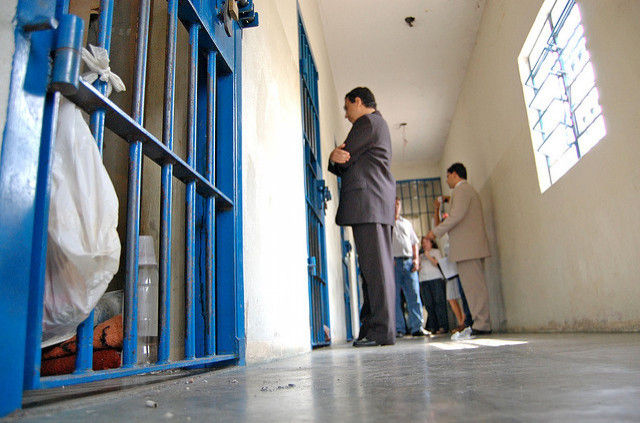Brazil's Growing Inmate Population Might Require The Privatization Of Prisons

Brazil’s incarcerated population, the fourth-largest in the world, grows more numerous every year – which means the prisons are running out of space. There are currently 548,000 inmates piled up in 340,000 places in the whole of the country, and the solution being discussed is to turn the prisons over to private hands.
Three state governments have already hired private contractors to manage their prisons. The next one on the list is the state of São Paulo, the economic hub of the country and its most developed state. State governor Geraldo Alckmin announced the construction of three new prisons, each of them with capacity for 10,500 inmates in both closed (the inmate never leaves the premises) and semi-open regime (inmates only sleep in the premises).
The federal government's model is public-private management, meaning that the concession to the private management company will be temporary – in São Paulo, the expectation is for the contracts to run for 27 to 33 years. But even if it would only be temporary, the idea of hiring a private company to manage the penitentiaries has been very contested, even by the Council of Political and Criminal Politics, which believes managing prisons should be exclusive competence of the government.
It does not help the cause that the mixed model has been tried before, to mediocre results. The states of Ceará, in the northwest of the country, and Paraná, in the south, both had privately operated prisons that reverted to being state-owned after courts deemed it unconstitutional for a prison to be privately run. However, the states of Santa Catarina, Espírito Santo and Minas Gerais are still trying the model out.
The other issue with the privatization of prisons is that the plan is not always financially viable. An inmate costs the state around 1,300 reais a month (around $550). But private contractors receive 2,700 reais a month (around $1,130) per inmate, which would add up to 28.3 million reais a year ($12 million) – to a single company for a single prison.
Aside from the numbers, there is also the human component. The government fears inmates will start to be treated as products. Since the companies would have total control of the prisons, any irregularities in the treatment of the inmates may be hard to detect, even with periodic inspections. Such was the case in a prison in Espírito Santo, where the inmates claimed abuses from an extremely strict regime.
“In first look, [the prison] appeared very clean, very sanitized, it even looks like a hospital. But the inmates are held for 23 hours a day, they have barely a minute and a half to take a shower – after which they stop the water supply. It’s inhumane,” lawyer Marcos Fuchs, executive director of NGO Conectas Direitos Humanos, told Spanish newspaper El País.
Private companies also became “choosy,” said Cearás congressman Domingos Dutra. “They only wanted to deal with well-behaved, minor-crime offenders. Nobody wanted to deal with murderers, mafia members,” he said. “And what was worse, they did not care about social reinsertion of the inmates. They were treated as products.”
Among the defenders of the model is Lourival Gomes, secretary of penitentiaries in São Paulo. “Private companies have more resources to hire employers, like doctors, and keep them in file. It is harder for the public entities,” he said.
© Copyright IBTimes 2025. All rights reserved.





















